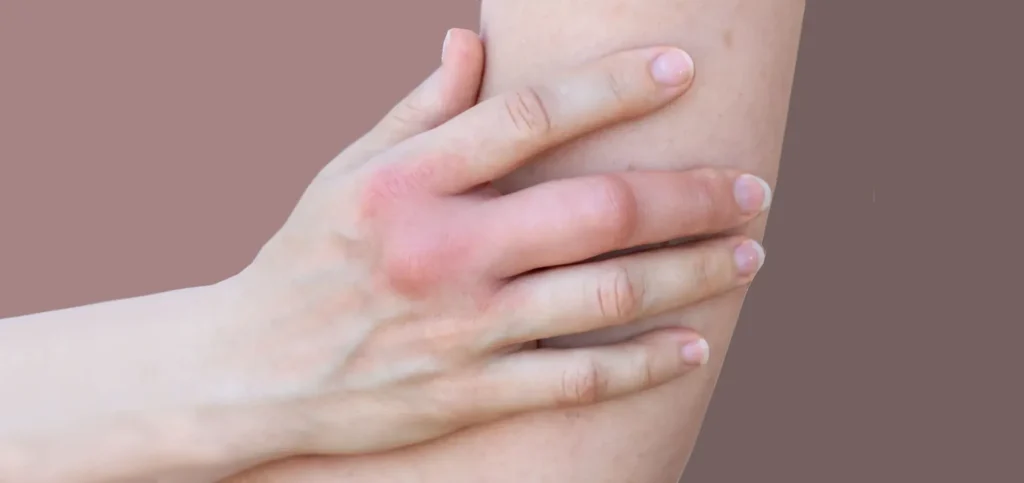If your fingers often feel stiff, swollen, or sore, it’s tempting to dismiss it as a sign of getting older or overuse. However, persistent finger swelling and discomfort can sometimes point to deeper health issues that shouldn’t be ignored. Understanding what’s behind these symptoms can help you seek timely care and prevent long-term joint damage.
Why Do Fingers Swell or Hurt?
Imagine waking up to find your fingers unusually tight, making it difficult to grip objects or wear rings. While it may seem harmless, such changes can sometimes indicate inflammation or fluid buildup within the joints. Although aging affects joint flexibility, persistent swelling or pain usually suggests an underlying problem that needs attention.
Finger swelling often begins in the smaller joints—particularly those of the fingers and wrists. When left untreated, the inflammation can gradually damage the joint tissues, reducing mobility and strength over time.
Common Causes of Finger Pain and Swelling
1. Rheumatoid Arthritis
This autoimmune disorder causes the immune system to mistakenly attack the body’s own joints, especially those in the hands and wrists. The condition leads to swelling, stiffness, and pain, which can worsen in the morning or after periods of inactivity.
2. Osteoarthritis
A result of gradual wear and tear of cartilage, osteoarthritis is common with age. It causes stiffness, tenderness, and the formation of small bony lumps, making fingers appear swollen or misshapen.
3. Other Autoimmune Disorders
Conditions like lupus and psoriatic arthritis can also cause finger inflammation. These may come with fatigue, skin rashes, or pain in multiple joints across the body.
4. Fluid Retention
When swelling affects multiple fingers and is not painful, it may be due to fluid buildup. Hormonal changes, kidney issues, or certain medications can contribute to this kind of swelling.
5. Trigger Finger
Known medically as stenosing tenosynovitis, this occurs when the tendon in a finger becomes inflamed, making it difficult to straighten the finger smoothly. A snapping or locking sensation is a key symptom.
6. Repetitive Strain or Minor Injuries
Typing for long hours, lifting heavy items, or excessive use of mobile devices can overwork the finger joints. Over time, these repetitive actions can cause chronic pain and stiffness.
7. Gout
Gout develops when uric acid crystals accumulate in the joints. While it typically affects the big toe, it can also target the fingers, causing sudden and severe pain, redness, and swelling.
How to Prevent Finger Swelling and Joint Problems
- Stay Active: Gentle hand stretches and low-impact exercises can improve flexibility and joint strength.
- Eat a Joint-Friendly Diet: Include foods rich in omega-3 fatty acids, antioxidants, and anti-inflammatory nutrients—like leafy greens, nuts, and fatty fish.
- Protect Your Hands: Keep your hands warm during cold weather, as low temperatures can increase stiffness.
- Regular Check-Ups: Persistent swelling or pain should not be ignored. Medical tests, such as blood work or imaging, can help identify the cause early.
Treatment Options for Severe Cases
If your symptoms worsen or limit your daily activities, medical treatments may be necessary. Depending on the condition, options may include:
- Synovectomy: Removing inflamed joint tissue to reduce pain and swelling.
- Joint Fusion: Stabilizing the joint to relieve discomfort.
- Joint Replacement: Replacing severely damaged joints with artificial ones.
- Tendon Repair or Release: Improving movement and function for tendon-related issues.
If you experience persistent pain, stiffness lasting more than an hour after waking, or redness and warmth in the fingers, it’s important to seek professional medical help promptly.
Always consult with your doctor or a healthcare professional before making any major changes to your diet, lifestyle, or medical routine. They can offer personalized advice based on your current health condition and medical history.
Note – If you have any health-related concerns, please call us at +91-9058577992 to receive free consultation from our experienced doctors. Thank you.
